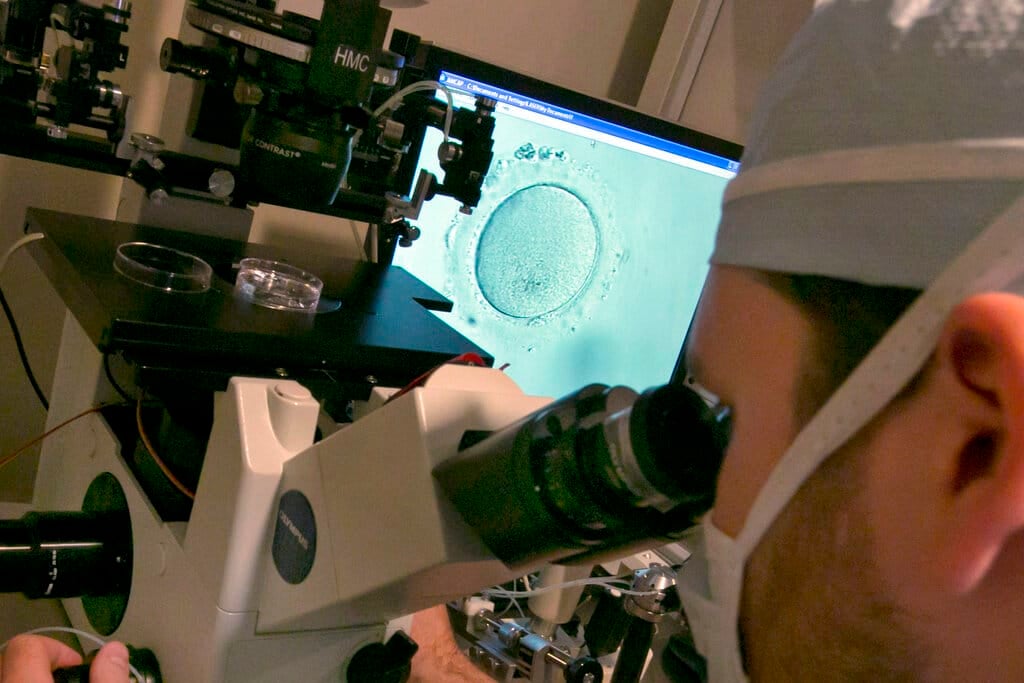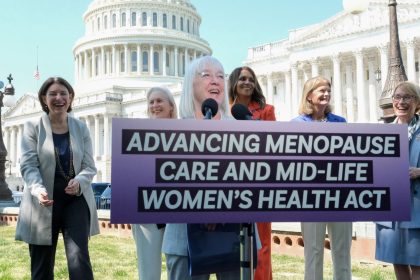Race Gap Seen in US Infant Deaths After Fertility Treatment

Black-white disparities exist in fertility medicine, reflected in life-and-death outcomes for babies, according to a large study of U.S. births.
The study, published Wednesday in the journal Pediatrics, is the broadest look yet at racial gaps for women who use in vitro fertilization, fertility drugs or other fertility treatments. Researchers found higher death rates for infants born to Black women who used such treatments than white women who did the same — a gap that is much wider than in babies born without those treatments.
Infant deaths are rare in the U.S., and the reasons for poor outcomes are unclear. Researchers saw racial gaps even after adjusting for age, diabetes, obesity, smoking and other maternal risk factors.
The steep cost of IVF and the scarcity of insurance coverage means women getting fertility care are wealthier on average.
The findings suggest women seeking fertility treatment are not protected from racism despite their relative affluence, said Dr. Cynthia Gyamfi-Bannerman, head of obstetrics and gynecology at the University of California San Diego medical school.
“These women are still experiencing the same racism that might be causing poor outcomes in other pregnancies,” said Gyamfi-Bannerman, who was not involved in the study. “We all need to pay more attention and see how we can find a solution.”
Black women who use fertility treatments may not be getting the highest quality care during pregnancy and after childbirth, said Dr. Michael A. Thomas, who will become the first Black president of the American Society for Reproductive Medicine next week.
“The IVF patients, they work so hard to get there that they don’t allow anything to stand in the way of that baby getting a good outcome,” said Thomas, who chairs the OB-GYN department at the University of Cincinnati College of Medicine. “But is the Black patient getting that same high-level, priority, concierge treatment?”
The researchers thought women using fertility treatments might see less racial disparity in birth outcomes.
“We were a bit surprised that this disparity was actually larger than in the general population,” said Dr. Sarka Lisonkova of the University of British Columbia in Vancouver, who led the research.
Her team analyzed data for more than 7 million U.S. births in 2016 and 2017, including more than 93,000 births resulting from fertility treatments.
They looked only at single births, which carry less risk than twin or other multiple births. Household income was not analyzed because it was not available in the data.
Deaths within four weeks after birth were four times higher in babies born to Black mothers who used IVF compared with white mothers who used IVF. Among babies born without fertility treatments, infant deaths were two times higher for Black moms compared with white moms.
Similar disparities existed for Hispanic and Asian mothers who had fertility treatments, but the gaps were less pronounced. There were too few American Indian and Alaska Native women using fertility treatments in the study to analyze their birth outcomes.
White women were much more likely than other groups to use fertility treatments. Of the 69,778 white mothers who used fertility treatments over the two years of the study, 227 infants died. Of the 4,669 Black mothers who used fertility treatments, 68 infants died.
The findings should not deter women from pursuing a family, Lisonkova said.
“There are countless women who have had fantastic pregnancies that started with medically assisted reproduction,” Lisonkova said. But because pregnancies to older women and those conceived with fertility treatment have worse outcomes than spontaneously conceived pregnancies, she encouraged women who want children to think about starting a family when they are “relatively young.”
“I know there are pressures to have your education, have your job and then have your family, but I think they’re both important,” she said. “And they can be combined in a way that women do not have to choose.”
___
The Associated Press Health and Science Department receives support from the Howard Hughes Medical Institute’s Department of Science Education. The AP is solely responsible for all content.
























